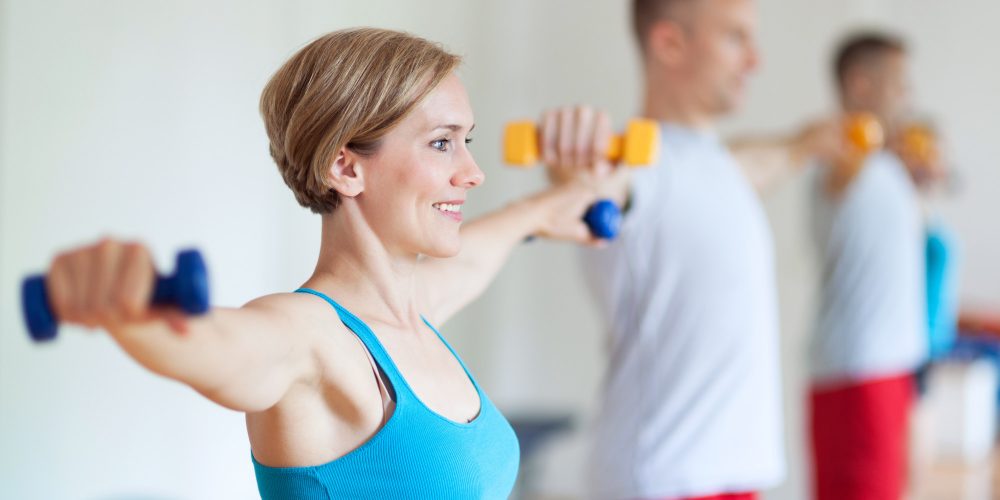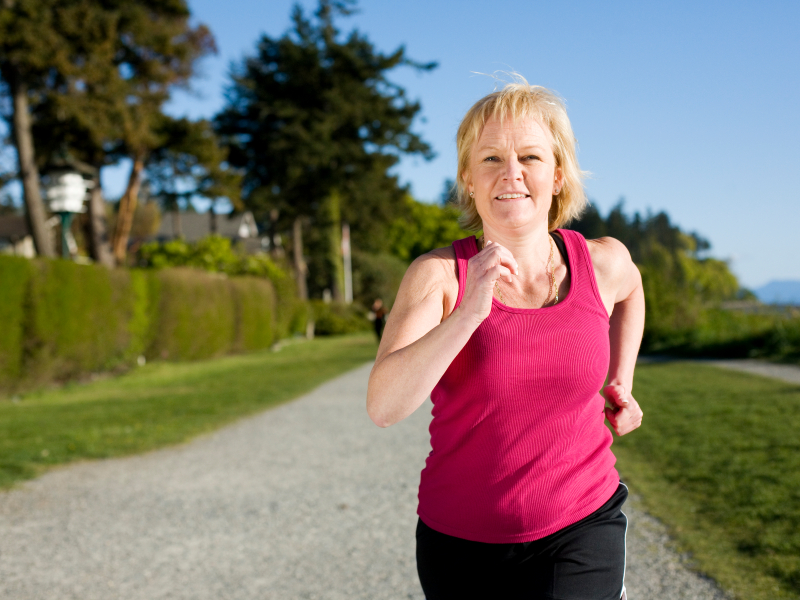A moderate active lifestyle is most beneficial for building a strong immune system at any age and especially at 50. Taking up any physical activity like, walking, swimming, jogging, yoga etc for most days of the week will help to ward off building up of toxins.

Starting a New Routine
- If you are a beginner, schedule an appointment with your doctor to see you can do a moderate exercise program to stimulate your immune system. This can ensure you are healthy enough for exercise.
- If you are healthy, aim to get at least 30 minutes of exercise daily. In general, 150 minutes of moderate exercise every week is enough to help boost your immunity. Keeping an exercise journal or using a smartphone app can help you track your workout time and progress. If you are already exercising or getting physical activity every day, you don’t need to add any extra time to boost your immunity.
- If time is a factor then, try three 10-minute chunks of activity every day until you can do one consistent 30-minute session. You can also vary each activity to work different parts of your body. For example, you could do a 10-minute jog in the morning, a 10-minute brisk walk at lunch, and then go for a 10-minute bike ride with your kids in the evening.
- Brisk walking: The older we get, the more susceptible we become to infections and inflammatory diseases. A daily fitness walk is the best activity for everyone but even more specifically for people above the age of fifty years to build a strong immune system. You will be on your way to a much healthier you with walking, lowering your risk for heart disease and diabetes, stroke, cancer, osteoporosis, anxiety, cognitive decline and depression. You will have a stronger back, healthy weight and less inflammation. Just walking 20 – 40 minutes a day can boost metabolism even when keeping the caloric intake, the same.
- Cycling: The Thymus gland in our body makes immune cells called T-cells that begin to shrink with time, typically after the age of 20. But in women who are cyclists, the production of T cells is more. Regular cycling helps preserve muscle mass and strength with age while maintaining stable levels of body fat and cholesterol. According to the scientists, cycling can help keep the immune system young too. In fact, cycling can keep your immunity high into your 80s. Even higher than adults who maintained a sedentary lifestyle in their mid-20s found the most recent study.
- Swimming: Swimming is a low impact form of exercise and is idle for women over 50. It provides a great cardiovascular workout as well as a workout for the whole body including the arms, back and shoulders. According to a study published in the European Journal of Applied Physiology. staying immersed in cold water for one hour, three times a week and found significant increases in white blood cell counts, attributed to cold water being a mild stressor which activates the immune system, meaning fewer colds.
- Strength Training: If you are new, meet a certified trainer. The trainer can help you identify the best types of strength-training moves for you. The trainer can also show you how to properly perform the exercises. Consider the following types of strength- or resistance training: weight machines, exercises with your body weight, resistance bands.
- Yoga: It’s difficult for our body to keep the pathogens at bay when the immunity levels are down in women with age & people around us are sneezing and coughing. Yoga, perhaps, is one of the most effective and time-tested natural immunity boosters that we can adopt for a healthier life. It is an ancient art that strengthens the body and relaxes the mind. Regular practice of asanas like, Shishuasana (Child pose), Setu Bandhasana (Bridge pose), Halasana (Plow pose), pranayama, Bhujangasana (Cobra pose), Dhanurasana (Bow pose), Matsyasana (Fish pose) is beneficial. To increase immunity, asanas that increase energy flow to the neck region should be practiced.

Note:
- Prolonged and strenuous bouts of activity, such as running marathons or intense cardio or strength-training at the gym, can cause harm. Unless you are already performing long exercise sessions, keep your activity to moderate level and shorter duration.
- Watch for symptoms such as rapid heart rate, difficulty breathing, chest pain, wheezing, feeling faint, or worsening body aches. If you have any of these, stop exercising and seek medical attention.
- Rest is a key component to any exercise regimen as well as your immunity. No matter if you are sick or not, give your body a chance to rest and recover.
Disclaimer
The Content is not intended to be a substitute for professional medical advice, diagnosis, or treatment. Always seek the advice of your physician or other qualified health provider with any questions you may have regarding a medical condition.